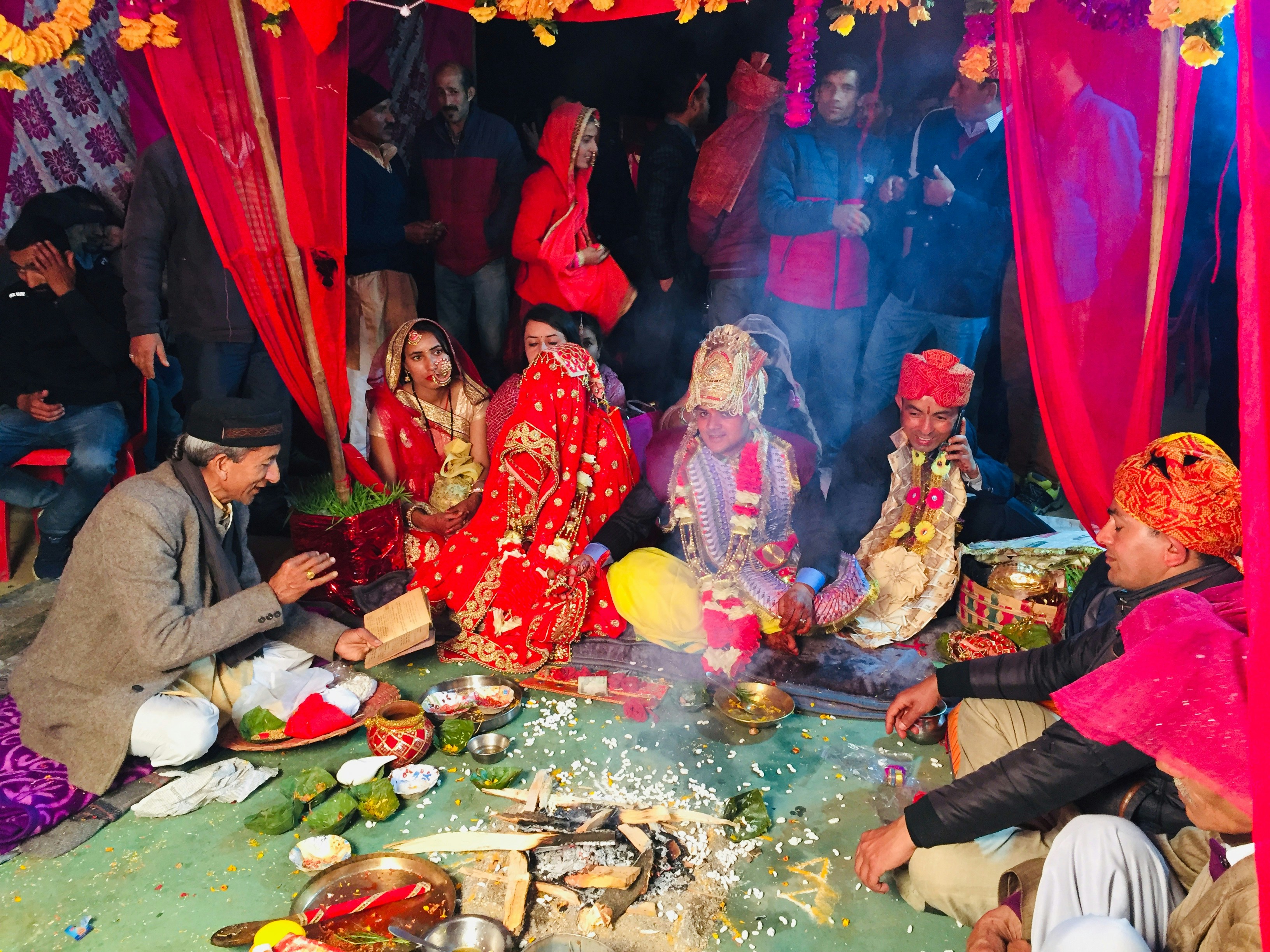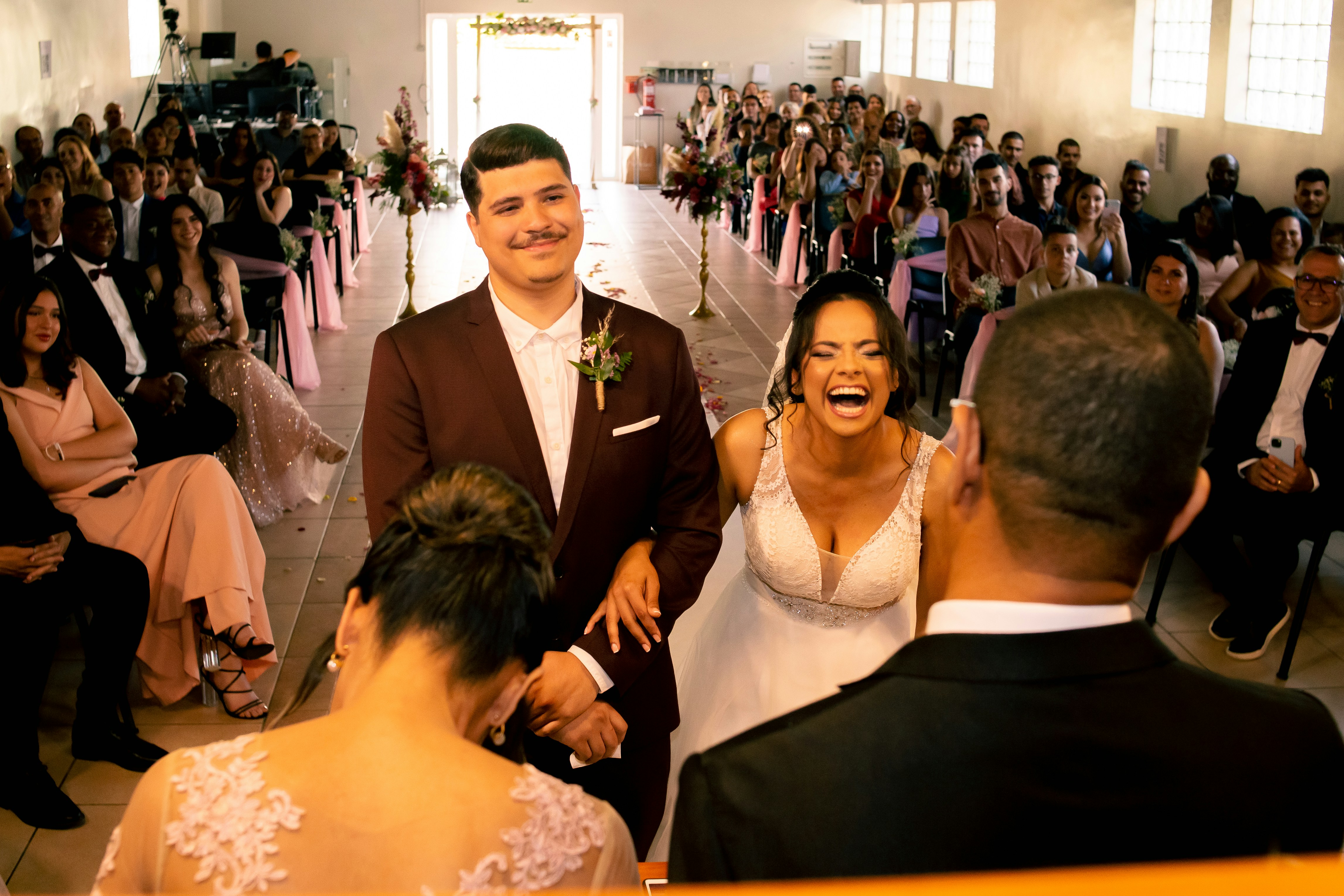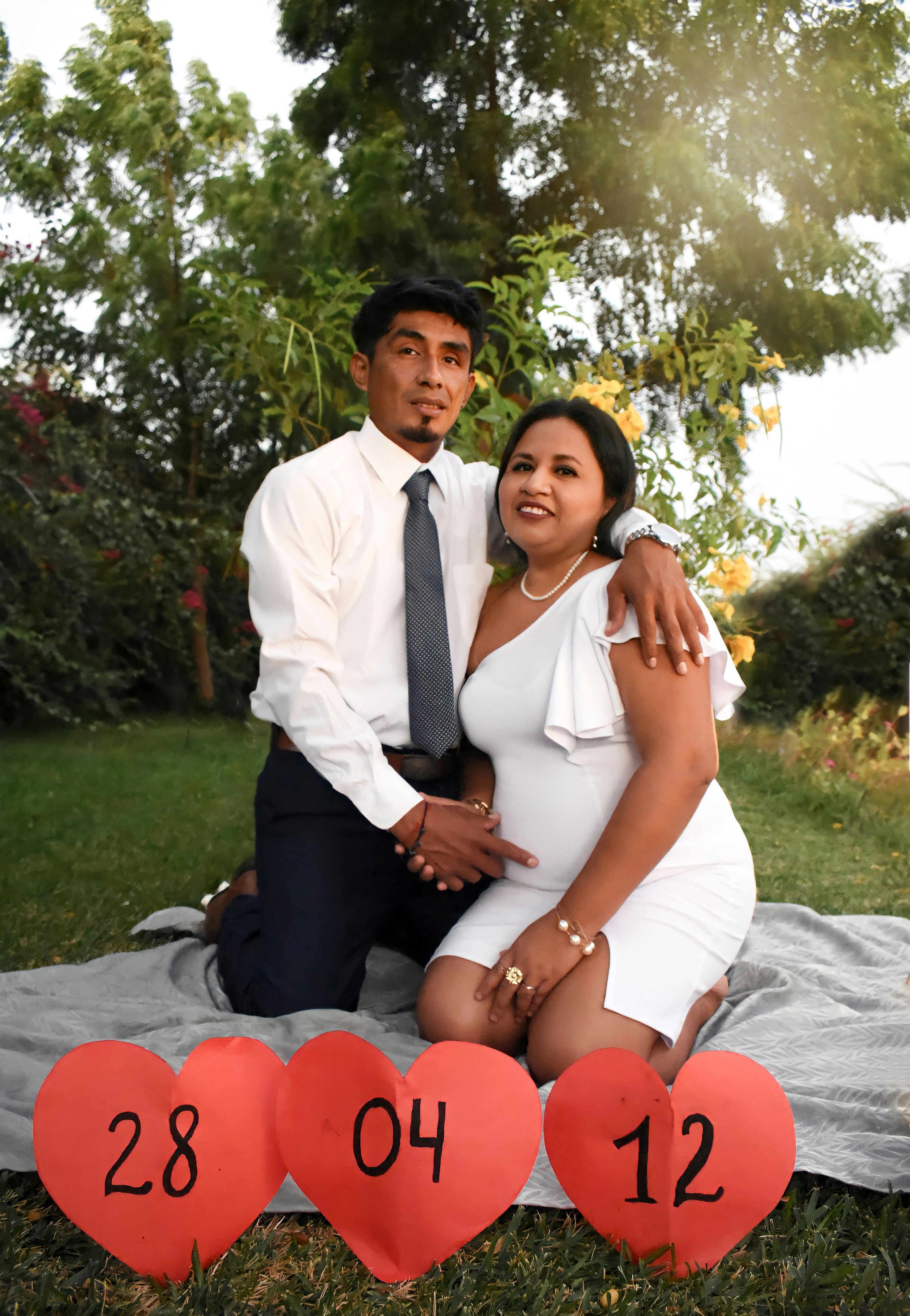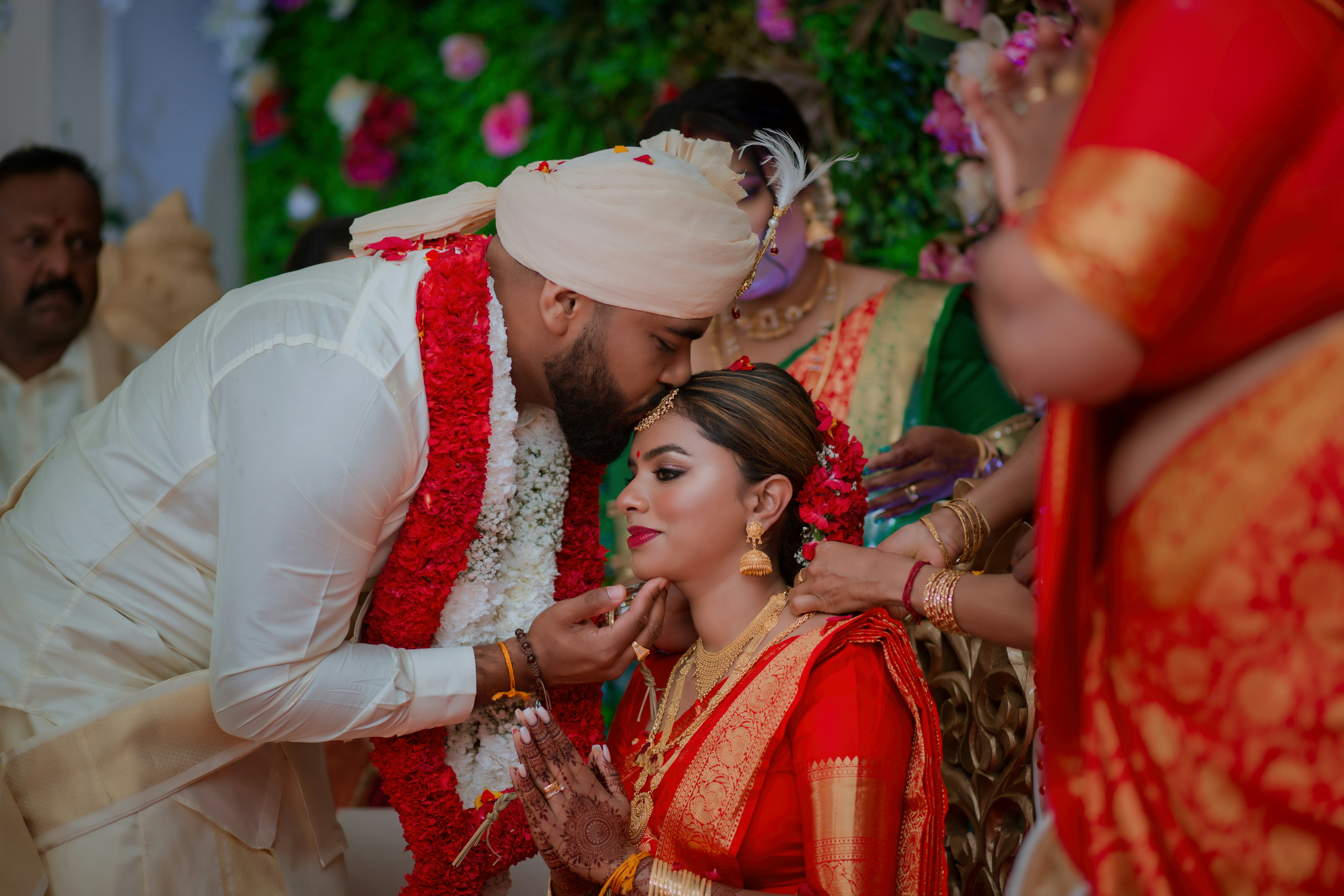Introduction to Astrology in Wedding Planning
Astrology, a practice rooted in ancient traditions, explores the influence of celestial bodies on human behavior and interpersonal relationships. Its premise suggests that the positions of the planets and stars at the time of one’s birth can significantly impact personality traits, preferences, and relational dynamics. As couples embark on the journey of wedding planning, understanding each partner’s astrological sign can provide valuable insights into their compatibility, decision-making processes, and emotional responses. This understanding can be a guiding framework for creating a harmonious wedding experience.
By utilizing astrology in wedding planning, couples can tailor their celebrations to reflect their unique celestial connections. For instance, the timing of the wedding day can be optimized according to auspicious astrological transits, increasing the likelihood of a joyful and successful union. Moreover, selecting colors, themes, and even the venue can be harmonious with the couple’s astrological elements—such as fire, earth, air, or water. This alignment ensures not only personal satisfaction but also a resonant atmosphere that reflects the individuals’ innate qualities dictated by their signs.
Additionally, astrology encourages couples to acknowledge and embrace their differences. By understanding the contrasting traits represented by their zodiac signs, partners can better navigate potential conflicts during the planning process. This approach fosters a collaborative spirit, ensuring that both partners feel valued and understood. Marriage is a celebration of unity, and weaving astrology into the planning phase can deepen connection and understanding, ultimately making the wedding day even more meaningful.
As we delve deeper into the application of astrological principles in wedding planning, it becomes clear that aligning celestial influences with earthly celebrations can facilitate a profound and joyful experience for couples embarking on their marital journey.
Understanding Your Zodiac Signs
The zodiac signs, based on the twelve divisions of celestial longitude, play a pivotal role in astrology, representing distinct personality traits and characteristics. Each sign corresponds to specific dates within the calendar year, which can dramatically shape individual behavior and compatibility. Understanding your zodiac sign can offer insights into your relationship dynamics, particularly when it comes to wedding planning.
Each of the twelve zodiac signs—Aries, Taurus, Gemini, Cancer, Leo, Virgo, Libra, Scorpio, Sagittarius, Capricorn, Aquarius, and Pisces—possesses unique attributes. For instance, Aries, known for their boldness and enthusiasm, may prefer an adventurous wedding theme, while sensitive Cancers might opt for a more intimate and emotional celebration. Knowing these characteristics can help couples navigate the intricacies of wedding planning.
Moreover, couples should consider how their signs interact. Astrological compatibility often hinges on elemental relationships, with Fire, Earth, Air, and Water signs offering different levels of understanding and connection. For example, a Water sign like Pisces may find deeper emotional resonance with a fellow Water sign or an Earth sign such as Taurus, creating a balanced union for planning decisions. Recognizing these combinations can aid in fostering harmony and collaboration in planning the wedding, ensuring that both partners feel acknowledged.
It is also beneficial to be mindful of potential challenges in their astrological pairing. For example, a controlling Capricorn may clash with a free-spirited Sagittarius. Awareness of these dynamics can empower couples to approach their wedding planning process with greater empathy and cooperation. Ultimately, by reflecting on their zodiac signs, couples can enrich their wedding experience, aligning their plans with the strengths and preferences that astrology reveals.
Choosing the Right Wedding Date
Choosing the right wedding date is an essential aspect of wedding planning, particularly for couples who believe in the influence of astrology on their relationship. Astrological calendars offer insights into the auspiciousness of specific dates based on planetary alignments, moon phases, and other celestial factors, which can significantly impact the dynamics of the newlywed couple.
One of the key considerations in selecting an ideal wedding date is the position of the moon. Many astrologers suggest that a waxing moon, when the moon is growing fuller, is a positive time for new beginnings. This phase not only signifies growth and fertility but also fosters emotional connection and harmony. Conversely, a waning moon may not be the best choice for a wedding, as it can symbolize decline and endings, which may not be conducive to the long-lasting love and commitment a marriage seeks.
In addition to lunar phases, it is crucial for couples to be aware of retrograde periods, particularly Mercury retrograde, which is notorious for causing communication breakdowns. Astrologically, the period when Mercury is in retrograde is often considered unfavorable for important life events, including weddings. Couples can benefit from planning their big day outside of these retrograde phases, ensuring less friction in communication and a smoother transition into married life.
Furthermore, aligning the chosen date with both partners’ zodiac signs can enhance compatibility and balance within the relationship. Couples should consult with an astrologer to determine the most harmonious dates, taking into account personal birth charts and the impacts of the current astrological climate.
By thoughtfully considering these astrological factors, couples can choose a wedding date that not only holds personal significance but also aligns with celestial energies, promoting harmony and positivity in their union.
Incorporating Astrology into Wedding Themes
Astrology offers a unique lens through which couples can enhance their wedding planning process. By integrating astrological signs and elements, couples can create a wedding theme that holds personal significance and reflects their celestial connection. Each zodiac sign is associated with specific elements—fire, earth, air, and water—that can be seamlessly woven into the fabric of the celebration.
For example, couples aligned with fire signs (Aries, Leo, Sagittarius) may opt for a lively and vibrant wedding theme. Color schemes that feature bold reds, oranges, and yellows can evoke the passion and energy of these signs. Décor elements might include bright floral arrangements, warm candlelight, and dynamic entertainment that encourage a spirited atmosphere. This fiery theme can symbolize the couple’s passionate connection and lively personalities.
In contrast, earth signs (Taurus, Virgo, Capricorn) often appreciate grounding and natural aesthetics. Their wedding themes can incorporate earthy palettes of greens, browns, and soft neutrals. Couples might choose rustic venues like barns or vineyards, accompanied by décor featuring natural elements such as wood, stones, and greenery. This reflects their affinity for nature and stability, creating a serene and inviting environment for guests.
Air signs (Gemini, Libra, Aquarius) can lean into ethereal and airy themes. Utilizing soft pastels or sky-inspired colors, these weddings could feature light fabrics, such as flowing drapes and delicate florals. Incorporating elements like helium balloons or paper lanterns can give a sense of upliftment, mirroring the intellectual and social nature of air signs. Such details ensure a whimsical experience for all in attendance.
Lastly, for water signs (Cancer, Scorpio, Pisces), deep blues, teal, and silver tones can create a calming atmosphere. Themes might revolve around oceans, lakes, or underwater settings, enhancing the intimate and emotional undertones of these signs. Décor could include reflective surfaces, aquatic-themed centerpieces, and soft lighting to evoke the tranquil essence of water.
By thoughtfully incorporating astrological elements and colors into their wedding themes, couples can celebrate not only their union but also their individual characteristics, creating a truly celestial-inspired event that resonates with their identities.
Astrological Compatibility: Finding Your Perfect Match
Astrological compatibility plays a pivotal role in understanding the dynamics of romantic relationships. Each zodiac sign possesses unique characteristics, strengths, and weaknesses, which can significantly influence the interaction between partners. By examining the astrological signs, individuals can gain insights into how these celestial alignments may foster harmony or lead to potential conflicts within a union.
The compatibility between two individuals is typically assessed through their sun signs, which represent core personality traits. However, it’s essential to consider other astrological elements such as moon signs, rising signs, and the influence of various planets, as these can provide a more nuanced picture of relationship dynamics. For instance, a couple with complementary signs may experience a natural affinity, allowing for a supportive and understanding partnership. Conversely, signs that clash may encounter challenges that require conscious effort to navigate.
Understanding astrological compatibility can aid couples in the wedding planning process. By recognizing each other’s inherent traits and approaches, partners can tailor their plans to minimize friction, fostering an atmosphere of cooperation. For example, if one partner is a meticulous planner while the other is more spontaneous, knowing these differences can help in allocating tasks that align with their strengths. Moreover, discussing astrological insights during the planning can strengthen the bond between partners, emphasizing collaboration and mutual respect.
By leveraging astrological knowledge, couples can approach their relationships with a deeper awareness of how to blend their energies effectively. This approach not only enhances their personal connection but also creates a more harmonious environment conducive to planning their future together. Exploring astrological compatibility allows couples to build a solid foundation that will benefit their relationship during the wedding planning phase and beyond.
Choosing Your Bridal Party According to Astrology
Selecting the right bridal party is a significant aspect of wedding planning, as these individuals will not only support the couple on their special day but also during the often stressful preparations. Incorporating astrology into this decision can help ensure compatibility among the members, fostering a harmonious and supportive environment throughout the planning process.
One of the critical elements in astrological compatibility is the element each sign belongs to—Earth, Air, Fire, or Water. For example, Earth signs such as Taurus, Virgo, and Capricorn are known for their practicality and reliability. These signs may work well with one another and would make excellent choices for bridesmaids or groomsmen as they can provide a grounded presence during planning. Their methodical approach can balance the emotional atmospheres that often arise when organizing a wedding.
On the other hand, Air signs like Gemini, Libra, and Aquarius thrive on communication and social interaction, making them perfect for energizing the bridal party. They tend to infuse creativity and intellect into group dynamics, so integrating these sign types could motivate and inspire the entire wedding party. For couples looking to enhance collaboration, having a mix of Earth and Air signs can help ground ideas while keeping the energy lively.
Conversely, Fire signs, which include Aries, Leo, and Sagittarius, bring enthusiasm and passion. While they may exhibit a tendency toward impulsivity, their vibrant energy can spur excitement and spontaneity in the planning process. Pairing them with Water signs—Cancer, Scorpio, and Pisces—can create a balanced environment; Water signs offer emotional depth and empathy, which can be soothing amidst the chaos of preparation.
By understanding the astrological compatibility of various signs, couples can not only select a bridal party that aligns with their personality but also foster an environment that is conducive to unity and joy. Before making the final decisions, it’s beneficial to consider the unique traits each member brings, ensuring a well-rounded and supportive group for the exciting journey ahead.
Astrology in Wedding Rituals and Traditions
Astrology plays a significant role in shaping various wedding rituals and traditions across cultures, drawing on celestial alignments to enhance the spiritual connection of the ceremony. Many couples choose to incorporate astrological elements to personalize their weddings, reflecting their unique bond and cosmic influences. One notable tradition is handfasting, which dates back to ancient Celtic practices. This rite symbolizes the tying of a couple’s lives together, often performed during auspicious lunar phases or planetary alignments that are considered favorable for love and union.
Additionally, personalized vows inspired by astrological themes can infuse the ceremony with deeper meaning. Couples may choose to reference specific celestial bodies, zodiac signs, or cosmic events that hold personal significance. For instance, mentioning the sun and moon, reflecting the balance of energies, or integrating planetary attributes—such as the love of Venus or the resilience of Mars—can create a memorable connection between the couple’s love story and the universe. Such integration allows for expressing the individual traits and compatibility of the partners as determined by their astrological charts.
Furthermore, selecting a wedding date based on favorable astrological alignments can enhance the ceremony’s significance. Couples often seek guidance from astrologers to determine the best time for their nuptials, considering factors such as planetary positions and lunar phases. This practice aims to align the couple’s union with auspicious energies, ideally promoting harmony, abundance, and love in their married life.
Incorporating astrology into wedding rituals not only enriches the ceremony but also establishes a spiritual connection that resonates with the couple. These traditions help to deepen the emotional significance, making the celebration a reflection of their shared journey through the cosmos.
Creating a Cosmic Honeymoon
Planning a honeymoon with astrology in mind can enhance the romantic experience for couples, allowing them to align their celestial connections with their getaway. The initial step involves considering each partner’s zodiac signs, as they can guide destinations and activities that resonate with their astrological traits. For instance, fire signs (Aries, Leo, Sagittarius) often thrive in vibrant locations rich with adventure, such as the beaches of Costa Rica or the lively streets of Barcelona. Meanwhile, earth signs (Taurus, Virgo, Capricorn) may prefer serene settings like the countryside of Tuscany or the lush forests of New Zealand, where they can engage in nature-based activities.
Water signs (Cancer, Scorpio, Pisces) often find solace near water, making romantic beach destinations like Maldives or the Amalfi Coast ideal choices. Air signs (Gemini, Libra, Aquarius) are usually drawn to urban environments that stimulate creativity and social experiences, such as the bustling streets of Tokyo or the artistic vibe of Paris. Each zodiac element not only influences preferred locations but also highlights complementary activities to deepen emotional connections between partners.
Timing is also crucial in astrological honeymoon planning. Couples should consider their lunar cycle when scheduling their getaway. A waxing moon might emphasize new beginnings, enhancing the romantic atmosphere. Additionally, aligning the honeymoon with favorable planetary transits can supercharge the couple’s experience. For instance, a transit of Venus can bring about heightened affection and harmony during the trip.
Ultimately, tailoring a honeymoon that incorporates astrological elements can create a unique and deeply rewarding experience. Prioritizing each partner’s preferences and aligning them with celestial influences can lead to unforgettable memories, fostering connection and understanding in the newly formed bond. By blending personal interests with astrological insights, couples can embark on a cosmic journey that resonates with their relationship.
Conclusion: Embracing Your Celestial Connection
As we have explored throughout this discussion, integrating astrology into wedding planning offers couples a unique way to deepen their connection and personalize their special day. By recognizing the significance of astrological elements, partners can create a ceremony that resonates with their individual and collective energies. This celestial approach not only enhances the wedding experience but also strengthens the bond between partners through mutual understanding of their astrological insights.
Planning a wedding is a multifaceted journey, often filled with choices that reflect the couple’s shared values and aspirations. By considering astrological compatibility, couples can navigate the complexities of wedding arrangements with greater harmony and alignment. Whether it involves selecting auspicious dates, choosing meaningful symbols, or even crafting personalized vows that echo their astrological profiles, embracing these celestial connections can make the event profoundly impactful.
Moreover, effective communication around astrological beliefs and interpretations can serve as a cornerstone for a successful wedding planning experience. By discussing their signs and elements, partners can express their preferences and desires openly, ensuring a seamless collaboration that honors both individuals. This aspect of communication fosters not only a beautiful wedding day but also sets the foundation for a successful marriage characterized by mutual respect and understanding.
In closing, marrying the celestial with the celebratory can lead to a wedding that is not just an event but a meaningful manifestation of a couple’s love story. By embracing their astrological connections, couples have the opportunity to curate a wedding experience that genuinely reflects their unique union, creating cherished memories that will last a lifetime. Allow astrology to guide your choices and elevate the significance of your special day, ensuring it is a true reflection of your shared journey under the stars.





